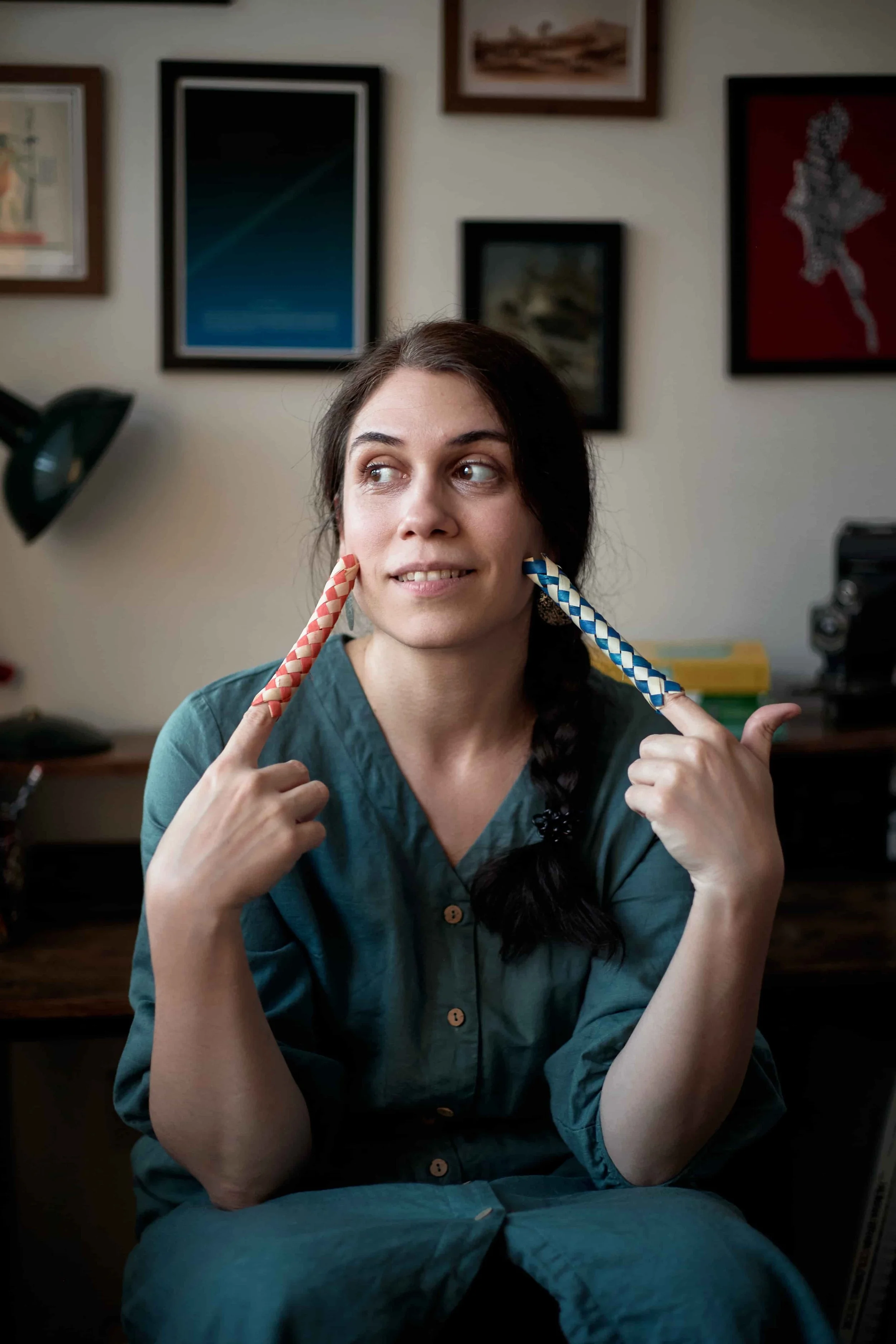
LGBTQIA+-affirming therapy that speaks your language from day one
Because some things shouldn't need explaining in therapy…
LGBTQIA+ Checklist (sound familiar?)
Having to explain your pronouns, relationships, or experiences repeatedly
Microaggressions disguised as "curiosity" or "trying to understand"
Wrestling with identity, coming out stress, relationship complexities
Family rejection, workplace discrimination, community belonging struggles
Religious or cultural trauma around identity
Having your relationship dynamics questioned or invalidated
Minority stress and its exhausting mental health impact
Questioning and doubting yourself and your worth
Therapists who needed LGBTQIA+ 101 lessons during your sessions
Having to educate therapists about your identity, pronouns, relationships
Feeling unsafe, judged, or misunderstood in traditional therapy spaces
Being pathologised for your identity or relationships
What I wish more people understood (as a a queer- and trans-affirming therapist)
A lot of the world functions by cisgender heterosexual standards.
From forms only having two options for gender, to talking about a significant other and people assuming they’re of a different gender than you.
And of course, it goes much, much further - having different rights, different access to healthcare, and being a target of microaggressions, ‘banter’, and discrimination at best, and hate crime at worst.
It means people close to you treating you differently once they find out you’re gay, bi, trans, or in any other way non-cishet. People invalidating and discrediting your very existence.
It’s not only exhausting, it’s deeply hurtful and affects how you see yourself to your core.
The LGBTQIA+-Affirmative Stance
All this stuff should not be controversial. It’s basic science, basic history, basic compassion.
But people are scared of what is different because they don’t understand. And instead of trying to understand, they judge. Hello ableism, homophobia, transphobia, racism, and discrimination and oppression of all sorts.
Being LGBTQIA+ doesn’t automatically mean you need therapy (say I, an LGBTQIA+-affirming therapist) - just to get that one out of the way, given as psychiatric manuals and so on have only way too recently clarified this, and a big part of the world is still confused.
The problem is that existing in a cishet world is hard AF if you’re LGBTQIA+, and minority stress is a very real phenomenon - in small (define small…) and very, very big ways.
That’s where LGBTQIA+-affirming therapy comes in. To undo the lifetime of having to explain yourself, advocate for yourself, and sometimes even fight for your right to exist. To undo the damage on your self-esteem that bullying, abuse, and hatred have created. To work through what it means to live in a world that is often hostile towards you.
To affirm your identity and your experiences, work with whatever is going on for you that is directly or indirectly related to… all this, and help you flourish.
LGBTQIA+-Affirming Therapy
… where your identity isn't up for debate, so we can focus on the stuff that really matters
Which means we’ll work with who you are and what you’ve been through instead of trying to “find another way of looking at it” - and validate this all while helping you move towards a life lived in alignment with what really matters to you. A life in which you can just be exactly who you are, and feel content.
We’ll do in-the-moment stuff to help you slow down and handle things in more helpful ways (to you, not the world’s expectations), but we’ll also go deeper, exploring and working with:
Beliefs (how you see yourself and your worth, and how you operate in the world because of this)
Wider contexts (how living in a world that often doesn’t accept you for who you are has likely shaped the way you’ve learned to cope)
We’ll explore and get specific about how to shift things and move you forward in practical ways. We’ll challenge what’s unhelpful, but most importantly, honour everything you are and what you’ve been through.
And we’ll get you to a place where you give yourself permission to be your authentic, real, maybe a lil’ quirky self and live the life you want.
More concretely: Evidence-based, skills-based therapy (Acceptance and Commitment Therapy / Cognitive Behavioural Therapy / Mindfulness). We’ll spend time both exploring and using active interventionsto help you unhook from the “there’s something wrong with me” loop, so your true self has space to emerge and bloom.
You won’t hear me say s**t like…
"Have you considered that you might be straight/cisgender?"
"Everyone's a little bit gay/trans"
"Are you sure about your identity?"
"Maybe you're just going through a phase"
"Have you tried prayer/conversion therapy?"
"Your lifestyle choice..." (anything framing identity as choice)
"I don't see sexuality/gender" (erasure disguised as acceptance)
“Do you have any evidence that that was discrimination”/”Have you tried thinking about it differently?”
Instead, you might discover how to…
Process minority stress and discrimination without internalising it
Navigate family dynamics and coming out decisions on your terms
Build confidence in relationships that work for YOU
Find your community and create chosen family
Heal from religious or cultural trauma around identity
Communicate your needs in relationships and life
Live authentically without constantly defending who you are
Create a life that honors all aspects of who you are
My Values & Approach
Here’s the thing: I’m a senior cognitive behavioural therapist in the NHS, a university supervisor, a mindfulness teacher, and I’ve worked in lots of different mental health services for many years, and also in academic research and healthtech. I also have 4 degrees (BSc Psychology, MSc Clinical Neuroscience, PGDip Psychological Intervention CBT, MSc Psychological Therapy).
But I think that all of that means squat if you don’t feel safe, heard, and understood by me. So, here’s what you can expect:
I use evidence-based, trauma-informed, affirming and inclusive approaches - CBT for OCD, overthinking, high-functioning anxiety; ACT, and mindfulness - no BS, airy-fairy stuff, and no cluelessness as to the systems, culture, dynamics, and trauma that shape the way humans operate
I have an understanding of good research - I’ll know when old approaches have been disproven, or when new exciting discoveries have been made
I have practised mindfulness personally since 2015, and have had my own therapy, mostly based on Acceptance and Commitment Therapy (ACT) - so I know what it’s like to be on both sides
Humanity (I’ll never pretend to have it all figured out)
Imperfection (because no one is, and those who try probably make terrible therapists)
Openness (about what’s working and what isn’t, about what’s really going on, about… everything)
Silly sense of humour (because sometimes that’s the only thing that makes sense)
Interested in working together? I’m so glad!
You deserve a life that feels like yours.
Having said that, I know reaching out can be a bit of a nerve-racking (and also amazing) step. So, because everyone’s different, here are your options to get started (and a more detailed overview below):
If you feel most comfortable starting in writing, contact me via this form
If you’d like to see if we click live, book a free 15-min consultation
If you’ve decided you want to go straight for an initial session to explore things in a bit more depth, book it below
Therapy sessions: £125/session
Book in week by week
Online therapy so we can work together even if we live miles apart (apart from the US and Canada). And so you can show up in a familiar, comfy space, with a hot drink, and get to work with the best therapist for you, while getting the same benefits (research shows online therapy is just as effective as in person).
Here’s how it all works…
(Optional): Reach out in writing OR have a free 15-minute intro call
Everyone’s different - some people prefer to get a feel in writing first, others want to see if they connect with someone live. Or you might even be ready to try a first session directly. Choose what feels right for you!
1
Initial session (up to 60 minutes), during which we’ll discuss:
Current difficulties, some background and history, & impact on your daily life
Goals & previous experiences of therapy (if any) - what was helpful and what wasn’t
How this all may link together & how ACT/CBT could help
What you need to make this work best for you
Your first between-sessions task (on which we’ll both agree or maybe you’ll suggest)
2
Ongoing sessions (45-50 minutes), during which we will:
Go deeper on our shared understanding of what may have led to development of your difficulties, and what may be keeping them going (called a ‘formulation’), to use as a basis for your treatment plan
Use a variety of interventions (ACT/CBT/mindfulness) to support you in achieving your goals
Set a plan / agenda at the start of each session to keep us on track (but this is not fixed and we can adapt according to your needs)
3
Ending therapy (which we both agree on):
We will discuss ending therapy a few sessions before the final one (and we will of course agree on this)
It’s natural to feel a little apprehensive about ending, so we really think together if it’s ‘just’ this, or if we’ve actually missed anything
During this final session, or perhaps last two sessions, we will work together to produce a summary of important points and a plan for the future
FAQs
-
Ok, let’s get this one out of the way as it’s an obvious one.
I’m cishet. If that’s a make-or-break criterion for you, I completely get it.
While there are pros and cons to working with a queer/cishet (respectively), I find that the most important thing is how we gel. So I’’d say if you’re on the fence, maybe just contact me or book a free intro call and take it from there - no pressure whatsoever.
If it helps, I have successfully worked with lots of LGBTQIA+ clients and it has been some of the most meaningful work I’ve done.
I’ve also dedicated one of my master’s dissertations to reviewing LGBTQIA+ interventions for mental health which I then published (read it here) and was LGBTQ+ lead in my NHS service. I’ve read a lot about minority stress and intersectionality, and learned from LGBTQIA+ folks (professionals and clients) for many years.
I care deeply about this work and would love to consider myself an ally (although I know that’s not for me to decide).
-
It may be for you if:
You often find yourself feeling not good enough, bending to other people’s will, and feeling confused and stuck - and you’re tired of brushing it off or trying everything under the sun without anything changing
You’ve tried other approaches and they’ve left you feeling invalidated, confused, or stuck
You want a queer- and trans-affirming therapist who, while always being on your side, will sometimes gently call you up on your BS to help you move forward
You want to live more authentically and are willing to put in some work for this to happen
(and also, like I said, you can reach out in writing or book a free 15-min intro call to ‘vibe’-check :-)
It may not be for you if:
You want an open, explorative space with no structure, practical skills, exercises, or things to do between sessions
You want to get rid of your difficult thoughts and feelings altogether and only experience positives
You want an uber-’professional’, blank-slate kind of therapist who will nod in agreement to everything you say and never challenge you
You want a quick fix or expect that things will change by you attending a session a week and continuing as you are outside of it
-
Short answer - almost. The only limitation is that I can’t offer therapy to clients based in the US or Canada due to licensing (and please note I work under UK jurisdiction, as I’m based and accredited in the UK).
-
I’m online-based only at the moment - so all sessions take place on Zoom. I love online therapy as research shows it’s just as effective as in-person therapy, but we can work together even if we live miles apart, and you get the comfort and flexibility that comes with it. As long as we both have good cameras and microphones, we can recreate most, if not all, of what we would do in a therapy room. You get high-quality therapy AND you can show up in a familiar, comfy space, with a hot drink.
-
ACT/CBT are goal-oriented and a therapy episode is usually completed in 3-6 months of weekly therapy sessions, but some people carry on for longer (we’re all different!)
The recommended frequency of therapy sessions is weekly - this is the ‘sweet spot’ frequency to allow for momentum to build but also allow for enough time for information to consolidate and skills to be practised between sessions
-
I mainly specalise in working with adult (18+) high-achieving introverts, neurodivergent, and LGBTQIA+ clients (separately or combined).
I also specialise in working with dog phobia - see here.
Having said that, I am highly trained in working with a range of mental health difficulties, including stress, depression, generalised anxiety disorder, panic disorder, health anxiety, social anxiety, low self-esteem, perfectionism, phobias, obsessive-compulsive disorder (OCD), and post-traumatic stress disorder (PTSD).
-
I generally do not work with people who present with severe and enduring mental health difficulties, including, for example, active symptoms of psychosis, or severe difficulties with emotional regulation - this is because such difficulties are best addressed in specialist services which consist of multi-disciplinary teams of clinicians.
Importantly and relatedly, I also do not work with people who are presenting with concerns related to their own safety or that of others - as in private practice I do not have access to professionals and facilities which would support managing such concerns, and therefore, it would be unsafe and unprofessional.
-
I am not set up to provide crisis support, so I am not able to respond to any urgent queries between sessions, nor am I able to work with people who have concerns about their own safety or that of others.
If you are having such difficulties and are in the UK, please call 999 or go to A&E. You can also contact your GP or local NHS mental health service for urgent support, contact the Samaritans on 116 123, text Shout to 85258, or use the Stay Alive mobile app.
If you are outside of the UK, please contact your local emergency services.
-
I have quite a few, bit of a nerd here :-) The most relevant ones are my PgDip in Psychological Intervention (CBT) from the University of Surrey, which I then topped up with an MSc in Psychological Therapies from the University of Exeter, and my accreditation with the BABCP (British Association for Behavioural and Cognitive Psychotherapies) as both therapist and supervisor. I also completed the Mindfulness Teacher Training Pathway with The Mindfulness Network/University of Bangor.
I’ve also dedicated one of my master’s dissertations to reviewing LGBTQIA+ interventions for mental health which I then published (read it here) and was LGBTQ+ lead in my NHS service. I’ve read a lot about minority stress and intersectionality, and learned from LGBTQIA+ folks (professionals and clients) for many years.
I also hold a BSc (Hons) in Psychology from the University of York, an MSc in Clinical Neuroscience from UCL, and plenty of experience - read more about me here
-
The type of therapy I offer is evidence-based and structured, goals-oriented, and forward-focused.
We’ll do in-the-moment stuff like helping you:
Learn more about how low mood or anxiety show up for you and how to ‘catch’ the signs before they slip into overstimulation and burnout
Know what to do if you get to the point of struggling (that works for your neurodivergent brain)
Be able to do stuff that helps you in the way it helps you even if it’s different to the neurotypical way
But we’ll also go deeper, exploring and working with:
Beliefs (your fear of being your true self and not being accepted, of not being good enough)
Wider contexts (the neurotypical world that has shaped the way you’ve learned to cope)
We’ll explore and get specific about how to shift things and move you forward in practical ways (think understanding where this stuff comes from AND learning to handle it differently). We’ll challenge what’s unhelpful and honour everything you’ve been through and how your brain works. We’ll do it all together, at your own pace, in your own way.
Read more about ACT here.
-
You’re definitely not alone! Talking to a complete stranger about your deepest thoughts and feelings can feel quite daunting when you think about it, and I really get that - and many clients tell me the same thing.
That’s why I offer a few options so you feel as comfortable as possible:
-
Not at the moment, no. It means fewer limitations around logistics (like number of sessions) for you, too!
… and breathe. You may just have found a way to go from doubting yourself and thinking things aren’t that bad and you should just get on with things to owning your experiences while moving towards a life where you embrace and celebrate all parts of yourself.
I’m here when you’re ready.





